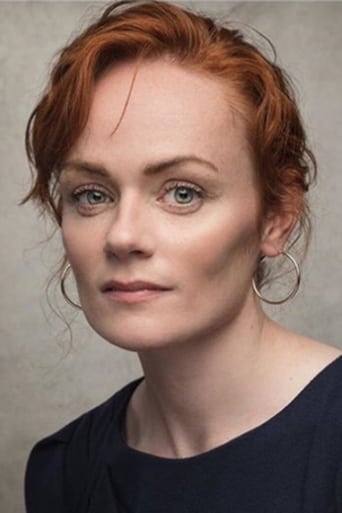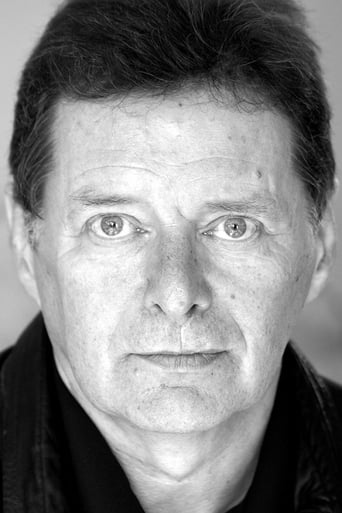valleyjohn
The Arbor is a very interesting movie . Unique in the way it is filmed , with actors lip sinking the words of real people who are being interviewed about the life of playwright , Andrea Dunbar.The only work that i have seen of Andrea Dunbar is ' Rita , Sue and Bob too ' a bawdy drama from the 80's. I had no idea the writer if this film lead such a tragic life and that her children suffered so badly too.While i admire the way this film is made and the obvious skill of the actors and director , i'm still not sure this film totally works. I struggled at times to stay with this movie and i feel it would have benefited from being half an hour shorter.The Arbor is an experiment that has too much going on for my liking but well done to Clio Barnard for attempting such an ambitious project.
Chris Knipp
Location shots, real people, and actors are deployed in a seamless amalgam in this recollection of of the talented but short-lived alcoholic working-class playwright Andrea Dunbar, from Bradford, West Yorkshire. Filmmaker Clio Barnard first spent two years recording interviews with Dunbar's family and friends,. Then she staged actors lip-synching the interviews as monologues, sometimes in a group scene -- a technique known as "verbatim theater" that arguably works more seamlessly because of Bernard's use of filmed settings. Barnard also staged parts of one of Dunbar's plays out near "The Arbor," ther part of the Yorkshire housing estate where Dunbar grew up and of which her plays speak. This is also the name of Dunbar's first play. Another one, Rita, Sue and Bob Too, was made into a reportedly excellent film. After a while, thanks in part to the excellent editing of Ole Birekland, you don't know who's the real person and who's an actor (because vintage footage of the people is there too). This creates a kind of Brechtian "Alienation Effect" that paradoxically makes it all more real and memorable. In the course of compensating mentally for shifts of format and perspective, you wind up projecting yourself into Andrea Dunbar's world. It's a tough trip. Dunbar grew up in the Butterfield Estates during the decline of the textile mills, writing her first play at fifteen. She was already experiencing the prevailing racism, alcoholism and domestic violence. Eventually, by the time she died at 29 of a cerebral hemorrhage, she'd had become a heavy drinker and had three children by three different fathers. The eldest, Lorraine, played here by the sad- eyed, insinuating Manjinder Virk, was a dark-skinned, pretty girl whose dad was of Pakistani origin. She was to write no plays, but otherwise would duplicate her mother's unfortunate model of children by different fathers, drug addiction instead of alcoholism, and imprisonment for the causing the death of her child by extreme negligence. Editing is a key factor here, but all elements are so smoothly handled you become unaware of the many layers and modes at work. Over-titles identifying the main speakers when the first appear also help to create the desired confusion. In news footage where the family is interviewed after Andrea's first London success, her real dad bears a quite striking resemblance to the father in the staged play. At the play, many people, presumably current residents of the estates, stand around to watch -- another way boundaries are broken. Ronnie Schieb calls this "a must-see entry in the ongoing evolution of cinematic formalism," but this "formally inventive" and "socially revelatory" exploration, neither formal nor abstract in the playing out, never seems anything but real, down to the sometimes almost impenetrable accents of the recorded speakers whose voices flow through the scenes. Very good foreground and ambient sound contributes to the seamless effect, of course. Credit here to Dolby Digital sound designer Tim Barker and re-recording mixer Richard Davey.There is a Rashomon-like aspect as one gradually watches Andreas's story unfold from multiple sources, including the various fathers of her children, and the most personal moments come with Lorraine's unfolding confessions. As Peter Bradshaw of The Guardian wrote about the film last spring, Barnard's "technique produces a hyperreal intensification of the pain in Dunbar's work and in her life," and this pain becomes most vivid as we realize that in Lorraine's life Andrea's tragedy "was replicated, almost genetically." Bradshaw makes another good point: Dunbar's story, and her success as a teenage playwright in Max Stafford-Clark's Royal Court, challenges a lot of what we assume about gritty realist theatre or literature from the tough north," because the plays are usually produced "by men whose gender privileges are reinforced by university." They become stories of how they got out. But Dunbar never got out. The Arbor, Barnard's debut feature, got a raft of nominations at BAFTA and the London Critics Circle, and two actual awards, one at Sheffield's documentary festival (Innovation Award) and the British Independent Film award for Best Achievement in Production. It's not a cheerful watch, but it's a very compelling one and a remarkable accomplishment by Clio Bernard -- as well as by the principal actors, Manjinder Virk, Christine Bottomley, Neil Dudgeon, Monica Dolan, Danny Webb, Kathryn Pogson, Natalie Gavin, Jonathan Haynes, Jimi Mistry, George Costigan. Try as you may, you will not spot their lips out of sync.The 94-minute The Arbor won Barnard a best new documentary filmmaker prize at 2010's year's Tribeca Film Festival. It will get a theatrical U.S. release by Strand in April 2011. Seen and reviewed as part of the San Francisco International Film Festival, April 2011.
Sindre Kaspersen
Clio Barnard's biographical documentary gives a multifaceted portrayal of British dramatist Andrea Dunbar and her family.Andrea Dunbar grew up with seven siblings in suburban housing estate Bafferton Arbor in Bradford, England. At the age of 15 in the early 1960s she began writing her first play "The Arbor" which described the experiences of a pregnant teenager who was abused by her drunken father. Her first play had it's premiere at The Royal Court Theater in London 1980.Through interviews with family members, neighbours and colleagues, this genre varied documentary/theater setup/feature film depicts the short though momentous lifetime of playwright and mother of three Andrea Dunbar (1961-1990), centring on the strained relationship between her and her daughter Lorraine. "The Arbor" is eminently directed by English filmmaker Clio Barnard who with characterizing close ups and subtle camera movements creates sharp and prominent portraits of men and women. The color harmonic cinematography from Ole Bratt Birkeland interacts and forms strong contrasts to the overt stories and the unwitting mood which is partially relieved by the theatrical and vibrant scenes which recreates parts of the playwright's debut performance "The Arbor" from 1977. Even though the acting is vivid and expressive in the earlier mentioned scenes, the film is most convincing in the interview scenes where lip-sync was used by professional actors. The pace varies in accordance with the takes shifting length and the versatile narrative makes this gripping character portrait an archetypal full-length documentary debut where faith plays a central part.






